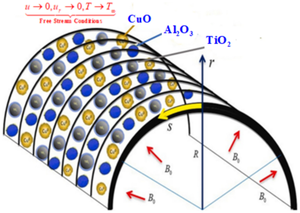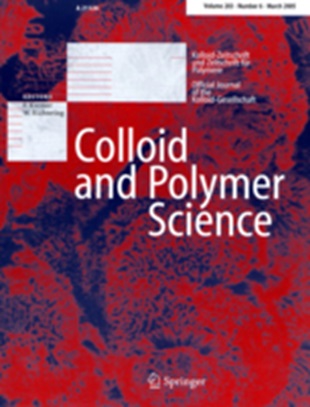Convective heat transfer of tri-hybrid nanofluid through a curved expanding surface with the impact of velocity slip and exponential heat source
Abstract
Obtaining an efficient heat transfer fluid is currently a significant challenge in various industries, including production processes and biomedical applications such as drug delivery systems. In line with this, the study aims to investigate the velocity slip impact along with convective heat transfer on the flow of tri-hybrid nanofluid over an expanding curved surface. Electrically conducting fluid suspended with nanoparticles enhances thermal properties; however, incorporating an exponential heat source with convective heat transfer properties further energises heat transport phenomena. The proposed model, described by nonlinear differential equations, is transformed into non-dimensional nonlinear ordinary differential equations using suitable similarity rules. These equations are then solved by using a semi-analytical technique, i.e., the Adomian decomposition method with controlled parameters. Moreover, the important outcomes are that the combined effect of all the nanoparticles forms the tri-hybrid nanofluid overrides the fact of nanofluid and hybrid nanofluid in all cases of velocity and temperature distribution. Further, the fluid temperature augments significantly for the enhanced magnetization, but the impact is reversed for the fluid velocity.
Graphical Abstract
-
The two-dimensional flow of tri-hybrid nanofluid in association with the role of velocity slip and convective heat transport properties shows a greater impact for the higher thermal conductivity.
-
The electrically conducting fluid, due to the imposition of the transverse magnetic field along with an exponential heat source, has several industrial as well as engineering applications.
-
The dissipative heat effect, including Joule dissipation, is vital in cancer therapy, drug delivery systems, peristaltic pumping processes, etc.


 求助内容:
求助内容: 应助结果提醒方式:
应助结果提醒方式:


